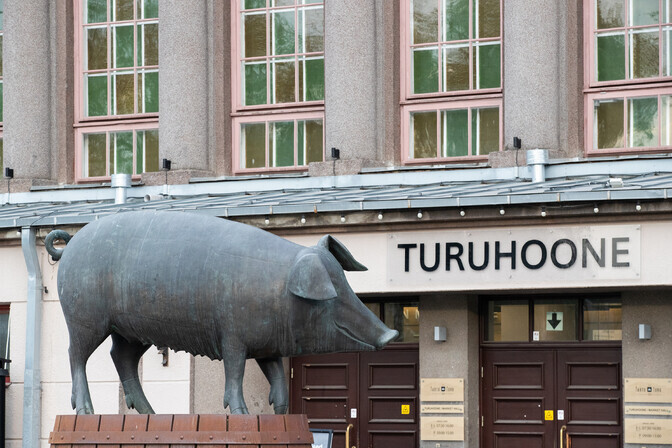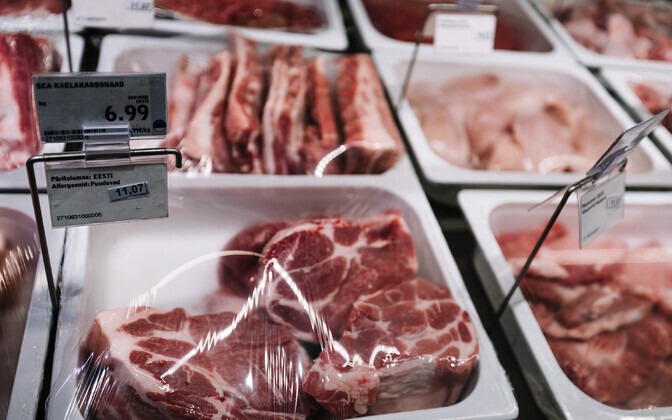According to the Ministry of Regional Affairs and Agriculture, African swine fever (ASF) has not reduced the availability of domestically produced pork. More than 70 percent of the pork sold in Estonia’s major grocery stores is locally sourced.
Janika Kattai, category manager for meat and fish products at Prisma, told ERR that the majority of pork sold at Prisma supermarkets comes from Estonia, with over 80 percent sourced from domestic producers.
“We prefer to work with Estonian suppliers and there has been no reason to change that so far. Estonian consumers favor local products,” Kattai said.
She added that African swine fever has had very little impact on them so far. Prisma has not needed to make any changes to its product range and no items have been removed from sale due to the outbreak.
At Grossi grocery stores, nearly 100 percent of the pork sold is domestically produced and comes from Estonian farms, according to Kertu Olu, a member of the management board at OG Elektra AS.
African swine fever has not affected pork availability at Grossi stores to date. “Right now, meat is available and accessible to everyone,” Olu confirmed.
No change in price either
“The pork sold at Coop is essentially 100 percent domestic. We do use pork from elsewhere in Europe during promotions, but the share of those products is marginal. This year, it has remained below 2 percent,” said Oliver Rist, purchasing director at Coop Estonia.
According to Rist, the prices of pork and ground pork at Coop are at the same level as before the latest outbreak of African swine fever — there has been no price increase or decrease due to the spread of the disease so far.
Rist added that since last week, Coop has experienced some delivery difficulties with certain local pork products due to the outbreak, but this has not significantly affected the overall availability of pork products in stores.
 Tartu Market Building. Source: Airika Harrik/ERR
Tartu Market Building. Source: Airika Harrik/ERR
At Selver, all fresh pork, ground pork and pork sold over the counter is of Estonian origin, said Mariann Järvela, communications manager in Selver’s marketing department. Of the seasoned pork products, 98.79 percent are domestically produced, with only 1.21 percent coming from outside Estonia.
“If there’s a need to adjust the product range, we will respond according to market conditions. So far, the spread of African swine fever (ASF) has not caused any major supply disruptions,” Järvela added.
Over half of Rimi pork comes from Latvia
Rimi purchasing manager Marilin Jürisson said that over half of the pork sold in Rimi stores comes from Latvia.
According to Jürisson, Rimi bases its purchasing decisions on which supplier can offer the best price for an equivalent product, while also ensuring the necessary volumes and stable deliveries.
“In general, we see that producers outside Estonia are significantly more open to cooperating with us on private-label products. This is an area where domestic producers still have untapped potential,” Jürisson said. She noted that production costs in any given country largely depend on production volumes, but also on state support and available subsidies.
African swine fever has not yet affected pork prices at Rimi and no price increase announcements have been made as a result.
Liina Jürgenson, adviser at the Ministry of Regional Affairs and Agriculture’s agricultural policy department, noted that according to the Estonian Institute of Economic Research’s 2024 study on “The Position of Estonian Food Products in the Domestic Market,” domestically produced pork made up 71 percent of the overall product range.
However, Jürgenson added that it is still too early to assess the full impact of African swine fever on Estonia’s pork market.
In addition to domestic suppliers, chilled or frozen pork is imported into Estonia from Latvia, Denmark and Poland.
—
